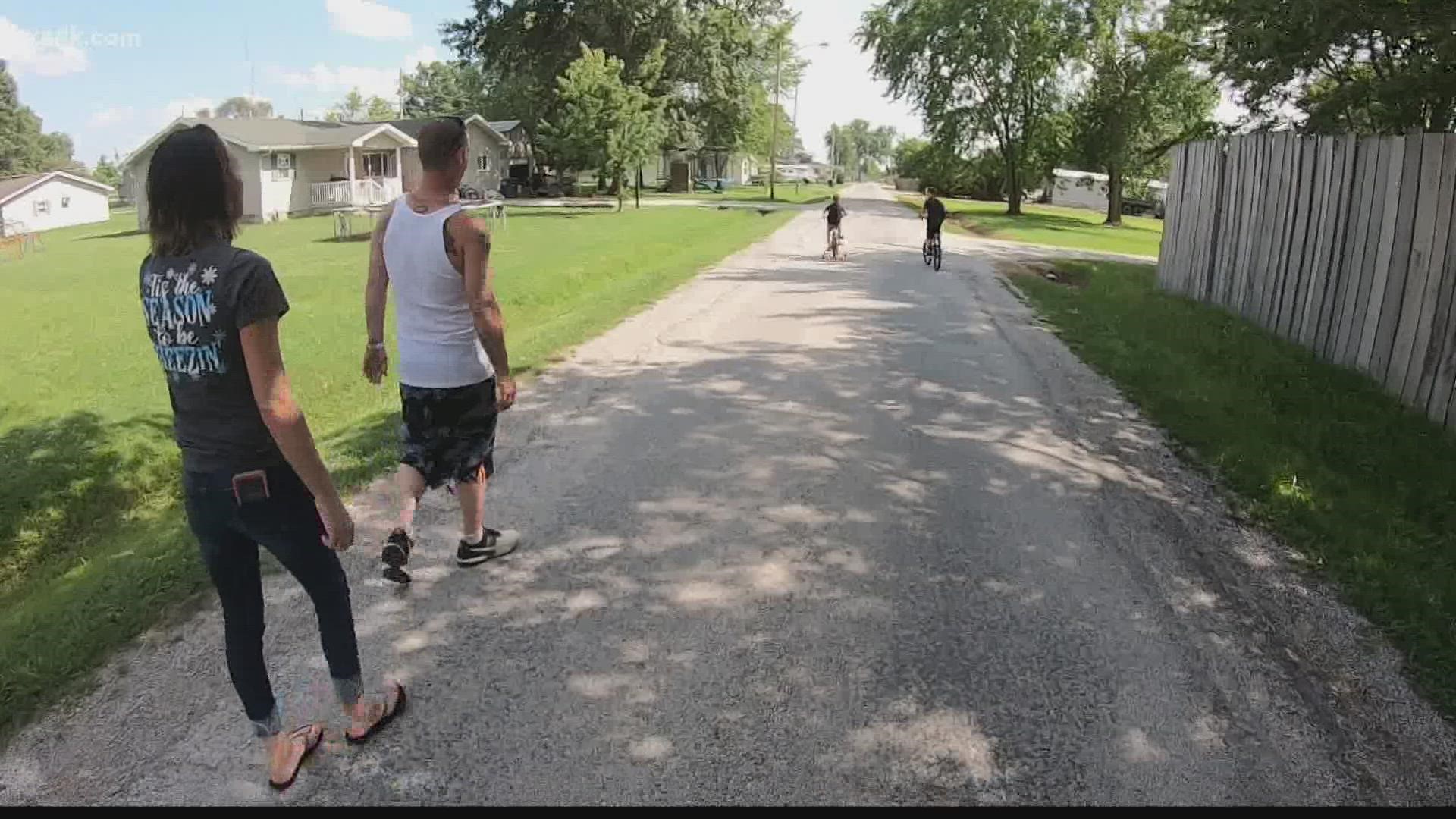RAMSEY, Ill. — For one Illinois family with six children, the lifeline meant to help Americans struggling during the pandemic turned into a nightmare.
Millions of Illinoisans received pandemic unemployment assistance from the federal government in July alone. More than 100,000 were later told they were overpaid, and they were billed to get the money back.
A new waiver program was supposed to ease the burden for people who didn't commit fraud to get the federal assistance. The Guthery family is experiencing what most of the applicants are facing now: a denial and another expensive bill after a grueling year.
"We didn't do anything. We didn't go anywhere. I mean, we followed the rules pretty much," said Ashley Guthery of Ramsey, Illinois. "I mean, around here, there's not a lot to do."
Guthery cut back on her hours at McDonald's to keep her children safe.
"It takes all of us four adults to manage six kids in a house, because we don't make that much. Honestly...I'll be honest with you. I bring home $200 working on the weekends," said Guthery.
The CARES Act was meant to be the help needed by families like hers. So far, the state of Illinois has received $4.3 billion from the federal government in Pandemic Unemployment Assistance to be distributed to residents like Guthery whose employment status was affected by the pandemic.
Since September, Guthery received around $36,000 from the PUA program.
"I was like, oh, wow! Like, that's a lot. And I was smart about it. I invested for my family," she said.
Then, Guthery got a notice in the mail, telling her to pay it all back. The Illinois Department of Employment Security decided that it had overpaid her.
"I could have just dropped," she said. "Thirty-six thousand dollars, like, you see where I'm living. You see how many people we've got, you know, $36,000. That's eight years' salary for me, even working full time."
IDES told the I-Team it mailed out 174,685 letters to Illinois residents regarding overpayment of PUA funds. It adds up to $961,565,796 that the state wants back, or $5,505 from each recipient on average.
Recognizing that some people had received those overpayments due to no fault of their own, the state established a repayment waiver program in December. So far, IDES has received 67,678 waiver requests.
Guthery applied. Like 62% of applicants, IDES denied her waiver application.
Senator Jason Plummer's office has been taking hundreds of calls from across the state about IDES overpayments and waiver program denials.
"Letters like this are going to scare the daylights out of people," he said. "There's people out there that are being asked to repay money that was legitimately owed to them that they should have gotten."
He agreed that the letters from IDES that Guthery received make the reason for the denial unclear.
"I think the guidance has been limited at best. But again, it's all driven by phone calls and internet connections," said Plummer. "IDES offices are not open. The phones ring. No one answers. And if you don't have access to internet, you really are out of luck right now."
Plummer is now looking into the Guthery family's situation and calling for an audit of IDES.
"If we're able to fix Ashley's problem, that's great. Right. But there's a lot of Ashleys out there," Plummer added.
Guthery told the I-Team she just hopes she won't lose the advantage that the assistance gave her family.
"I feel like it's their responsibility, not ours. Like, why did you give it to us?" she asked. "I finally thought that, oh, we're getting somewhere, you know, they're helping us bump up in a class, get somewhere," she continued. "Now it's like I'm right back where I was."
"You're not in my shoes. You don't see what we do to survive," Guthery added.
In response to questions about Guthery's case and the thousands of people denied waivers, a spokesperson for IDES wrote:
Per Section 1900 of the UI Act, IDES employees are prohibited from discussing details of individual cases. Therefore, I am unable to provide you any information as it pertains to a particular claimant.
Per federal law, a PUA overpayment would be denied if the claimant did not indicate on the survey sent to them:
- The overpayment was not created through no fault of their own
- Recovery of the overpayment would not be against equity and good conscience
Effectively, what this means, is each claimant fills out the survey on the correspondence sent to them and selects yes or no to those two questions (was the overpayment created through no fault of your own; would the recovery of the overpayment be against equity and good conscience), and the survey is then reviewed on a case-by-case basis by the Department.
Hypothetically, a waiver would be denied if a claimant indicated the overpayment was created through no fault of their own, but during the review process, it is discovered the claimant was working while collecting without reporting those wages to the Department. That would result in a denial of a waiver because the overpayment was created as a result of their collecting benefits for which they were not eligible. Each request of an overpayment recovery waiver is reviewed on a case-by-case basis.
In general, claimants who are denied an overpayment waiver request still have access to the traditional appeals process. Claimants should contact the Claimant Services Center at 800.244.5631 and select the appropriate queue to schedule themselves for a callback.

